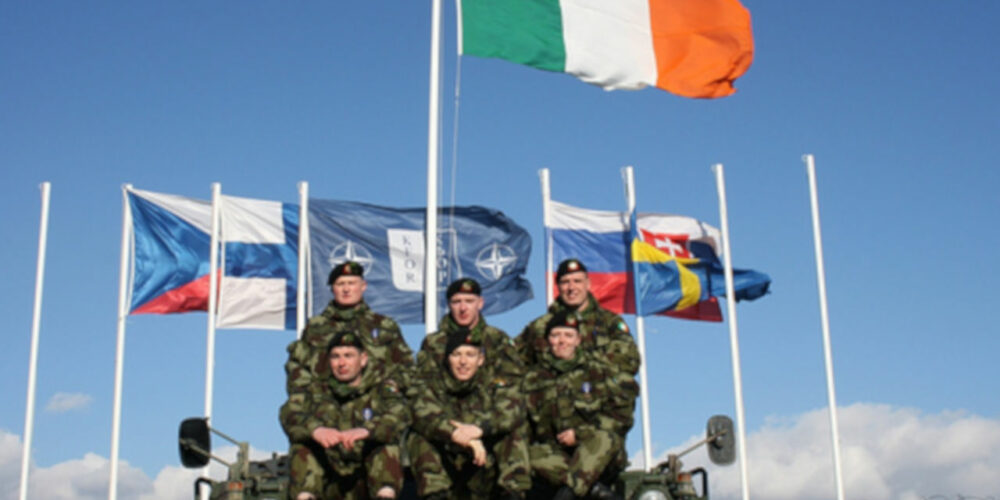It has long been held that states do not have friends, they have interests.¹ With that in mind I read the Defence Forces Review, 2020,² to see how an important part of the Irish state bureaucracy, the officer corps of the Defence Forces and the civil servants within the Department of Defence, view the interests of the state.
The Review is published by the Chief of Staff’s Public Relations Section and has the usual proviso that the views expressed are those of the contributors and are not necessarily those of the Defence Forces or the Department of Defence. Nevertheless we can assume that they reflect the thinking within both.
The tenor of the Review identifies Irish state interests as being an integral part of the “Atlantic order,” described as the concept that global prosperity and stability are intricately related to the US-European relationship.³ There is no articulation of any Irish state interests independent of what the CPI describes as the triple lock of US, British and EU Imperialism. The Review was written during Trump’s presidency and reflects the view that the EU might have to increase its military capacity in the light of Trump’s increased unilateralism.⁴
The Review argues that Ireland receives a “free ride” and benefits from the “security umbrella” of NATO, and it calls for increased military spending and enhanced involvement by the Defence Forces in EU military campaigns.
The concept of Irish neutrality doesn’t really feature in the Review. In an attempted rebuttal of Ray Kinsella’s correct assertion that further integration in EU military structures will further undermine neutrality, Eoin Micheál McNamara claims that
under the conventional Clausewitzian “politics by other means” expression, “war” is an exercise that aims to “decisively defeat” an enemy or make a relative gain at the expense of a strategic competitor. The European Union’s record as a military actor does not synchronise with Clausewitzian logic. Alexander Astrov argues that most of today’s Western military operations have instead become a form of “policing” in support of international order.⁵
In plain language, this means that any EU action in suppressing anti-imperialist agitation is legitimate and does not undermine Irish neutrality. This is a reactionary charter supporting military intervention wherever the European Union believes the interests of imperialism are under threat.
“When the majority of working people realise . . . that wars are barbaric, deeply immoral, reactionary, and anti-people, then wars will have become impossible.”
Rosa Luxemburg (speech from the dock, Berlin, 1913)
That this reflects the long-held ideology of the Irish state is no surprise. It has long been the ideology of the dominant sections of the Irish bourgeoisie that its interests are bound up with those of the dominant imperialist powers. Before the First World War the Redmondite party did not want to leave the Empire, they merely wanted a bigger slice of the benefits of Empire for their own class. The first campaign of the Free State army was the military overthrow of the Republic, to allow for a new arrangement between the Irish bourgeoisie and British imperialism.
If the next government is led by Sinn Féin and seeks to govern from the left, the issue of Irish involvement in EU military campaigns must be faced. There must be an information campaign in support of neutrality, leading to a referendum to enshrine it in the Constitution. The links between the Defence Forces and those of NATO must be terminated.
A look at the list of contributors to this Review reveals the fact that many Irish officers undergo advanced study in institutions associated with NATO and European “defence” establishments. One contributor was a “policy analyst and adviser to government and civil society actors in Ukraine, Belarus, the Baltic states and other countries regarding the development of security and defence policy.”⁶
If Ireland is to develop an independent foreign policy, the dominant ideology within the military and the Department of Defence must be challenged, as a priority.
- Generally credited to Henry Temple (Lord Palmerston).
- Defence Forces Review, 2020 (www.military.ie).
- Defence Forces Review, 2020, p. 164.
- Defence Forces Review, 2020, p. 164.
- Defence Forces Review, 2020, p. 126.
- Defence Forces Review, 2020, p. 265.






